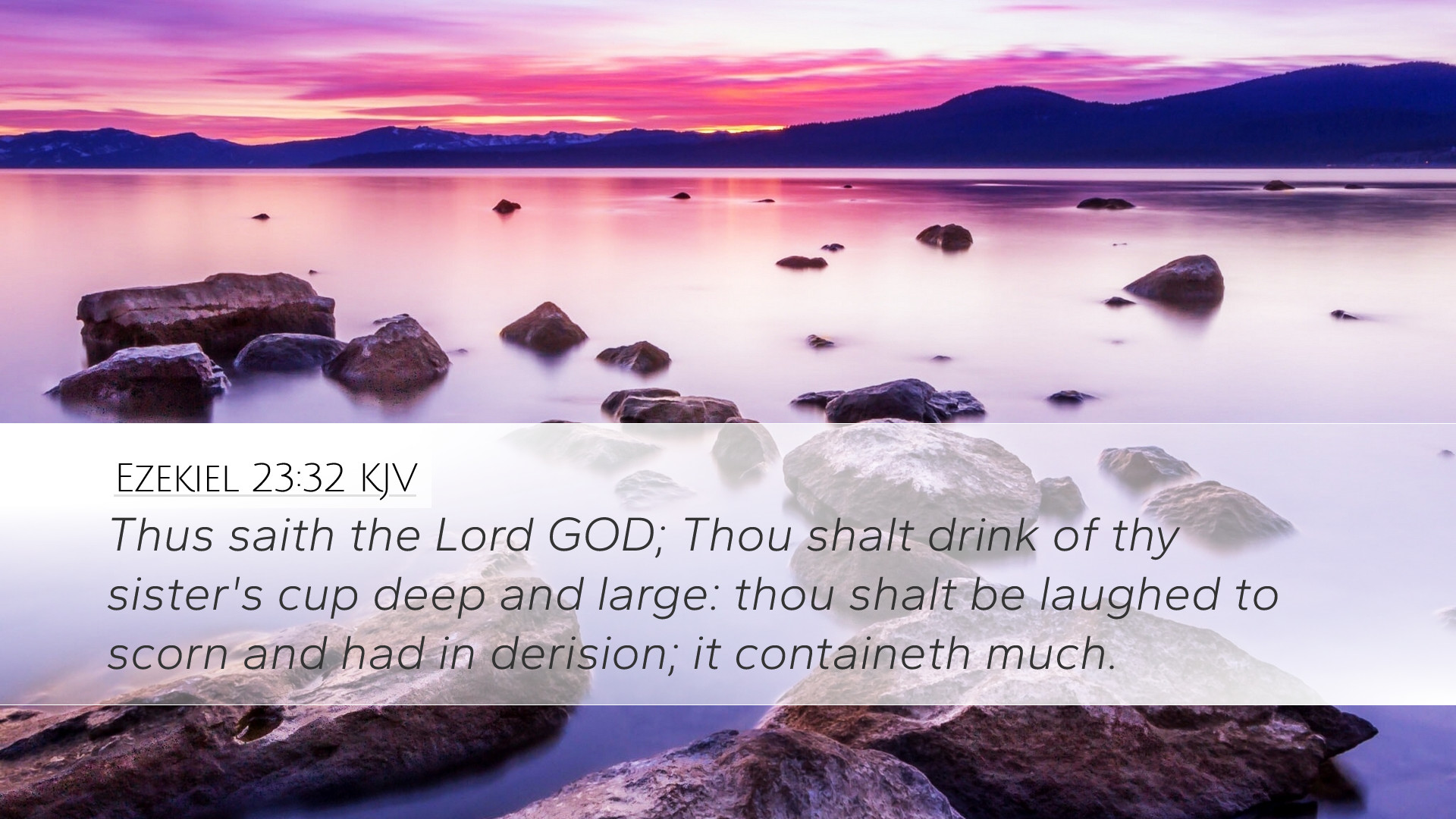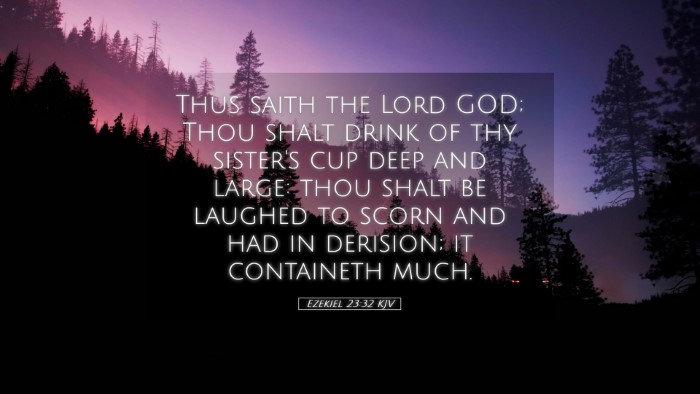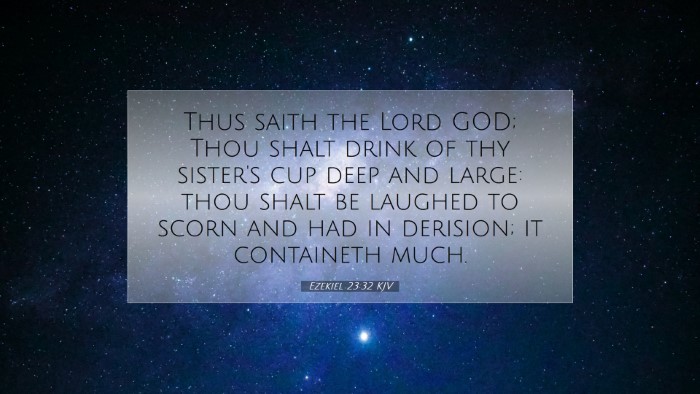Commentary on Ezekiel 23:32
Ezekiel 23:32 states, "Thus saith the Lord God; Thou shalt drink of thy sister's cup deep and large: thou shalt be laughed to scorn and had in derision; it containeth much." This verse is a part of a larger allegorical narrative that Ezekiel employs to illustrate the unfaithfulness of Jerusalem and Samaria, the two sisters representing the Northern and Southern kingdoms of Israel, respectively. The prophet employs vivid imagery to convey the impending judgment of God upon these faithless nations.
Understanding the Historical Context
The context of Ezekiel's prophecy occurs during the Babylonian exile, a consequential period in Israel’s history. The Israelites were facing the ramifications of their disobedience to God, which included idolatry and infidelity. By exploring the historical backdrop, one can appreciate the gravity of Ezekiel's statements about the impending punishment they would face.
Exegesis of the Verse
This verse follows a detailed metaphor where God speaks to the two kingdoms, likening them to two sisters, Oholah (Samaria) and Oholibah (Jerusalem). In this context:
- "Sister's cup": This signifies the judgment and suffering that Israel would inevitably share with the Northern Kingdom, as both have sinned against God.
- "Deep and large": This phrase reflects the extent and depth of the judgment that will befall them. It suggests that the consequences will be significant and consuming.
- "Laughed to scorn and had in derision": These descriptions depict the mockery and humiliation that Israel will face as a consequence of their actions.
Theological Reflection
From a theological perspective, this verse reflects God’s justice. Matthew Henry emphasizes that God's dealings with His people reveal both His righteousness and the seriousness of sin. The reference to the cup serves as a reminder that God is not indifferent to transgressions; He actively judges in accordance with His holiness. Herein lies a lesson for contemporary believers about the severity of sin and the need for repentance.
Insights from Public Domain Commentaries
Albert Barnes highlights the notion that the metaphor of a cup often symbolizes suffering and divine judgment throughout biblical literature. This can be linked to other instances, such as in the Psalms and prophetic literature where drinking from a cup indicates experiencing God’s wrath.
Moreover, Adam Clarke comments on the cup signifying the share of sorrow and affliction that the Israelites would undergo, illustrating the principle that unfaithfulness results in severe consequences. Clarke’s observation serves as a point of reflection for believers about faithfulness and the importance of maintaining a right relationship with God.
Practical Applications
This passage speaks not only to the Israelites of Ezekiel’s time but also carries timeless principles relevant to today’s followers of Christ:
- Understanding God’s Judgment: Just as Israel faced consequences for their actions, so too do individuals today need to consider their own lives concerning faithfulness to God.
- Call to Repentance: This verse serves as a profound reminder of the necessity for repentance and turning back to God to avoid humiliation and judgment.
- The Weight of Sin: The imagery of the ‘deep and large’ cup calls attention to the serious nature of sin and the reality of judgment, urging believers to reflect deeply on their spiritual state.
Conclusion
Ezekiel 23:32 encapsulates the weight of God’s message against unfaithfulness, serving as a powerful reminder of divine judgment and mercy. Careful reflection on this verse encourages believers to remain steadfast in their devotion to God, embracing a life of faithfulness that avoids the pitfalls of sin. The insights shared in this commentary from respected theologians highlight the enduring relevance of Scripture and its call to righteousness.


